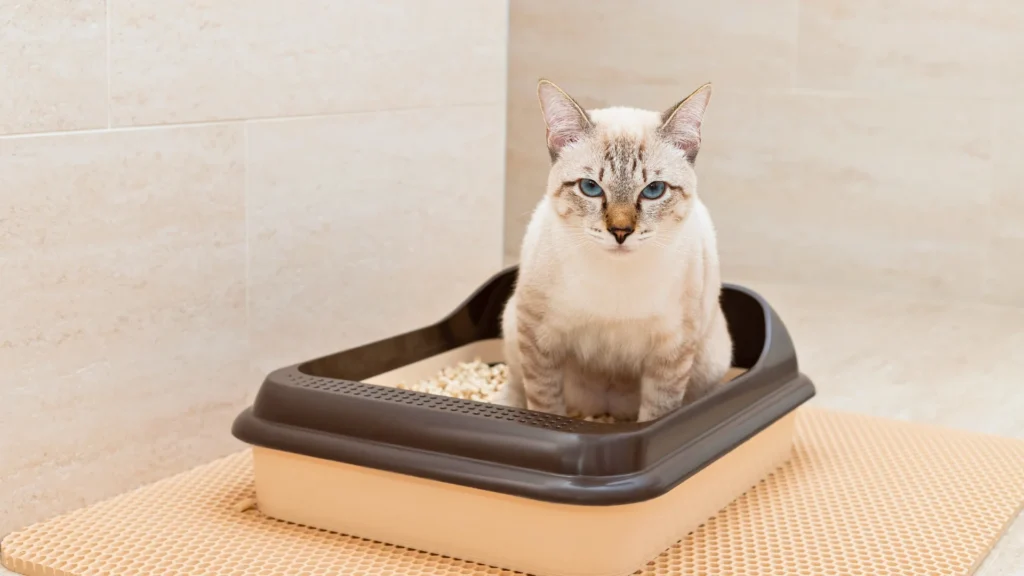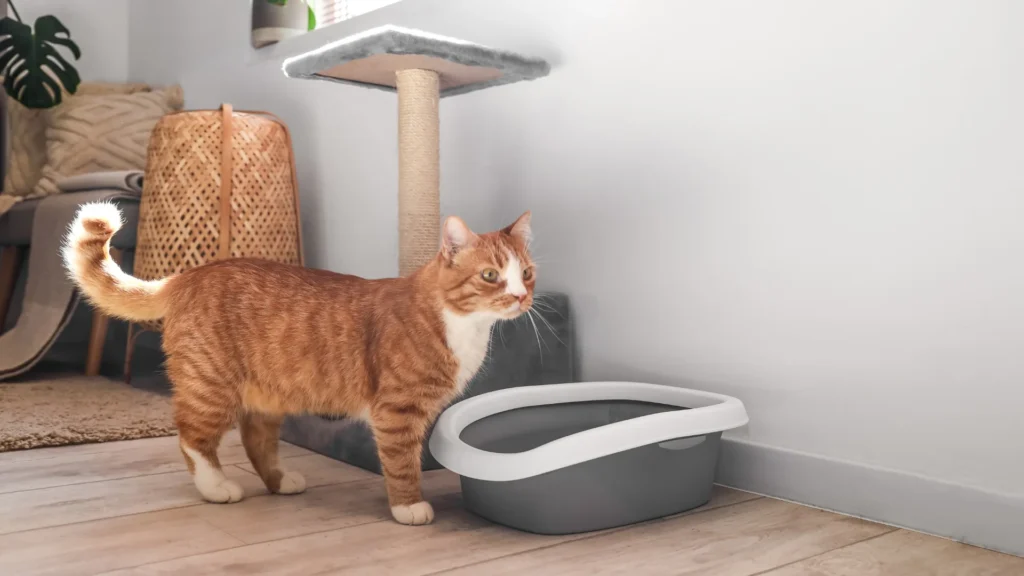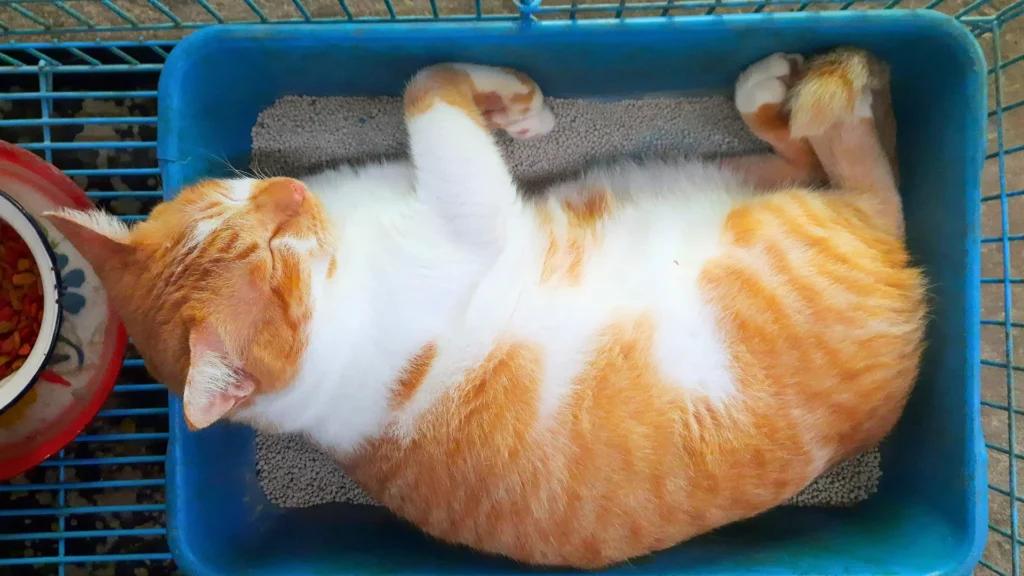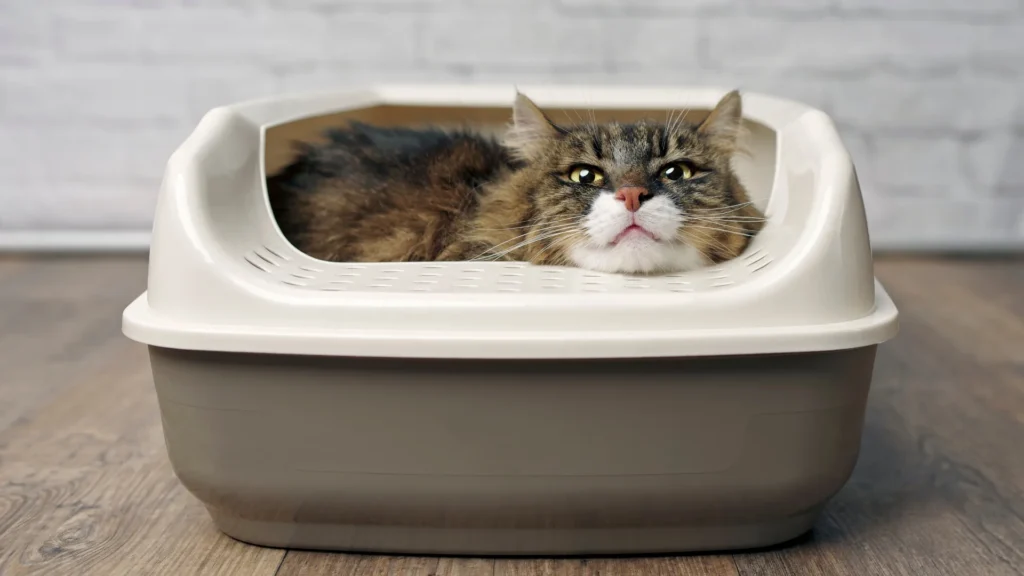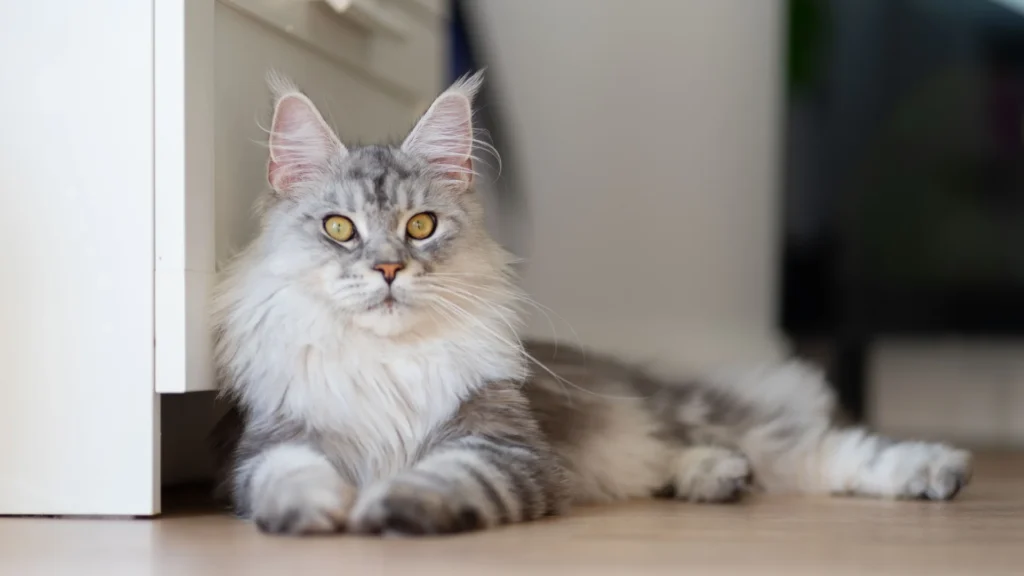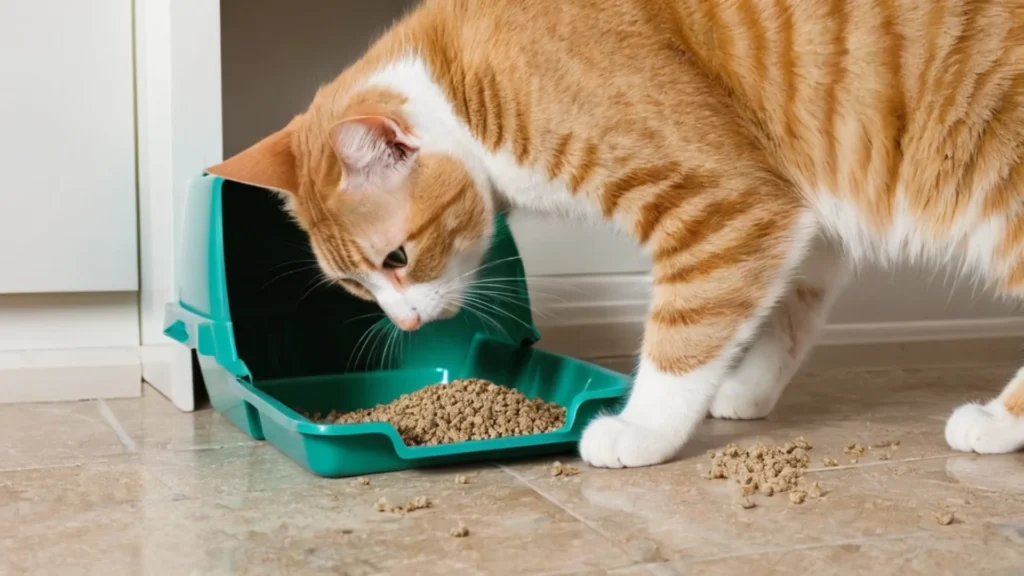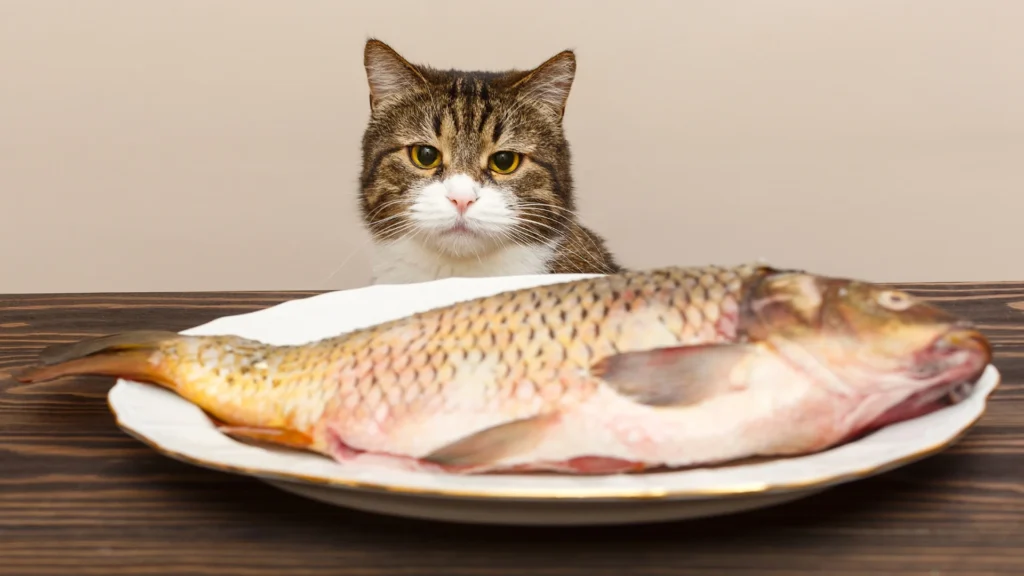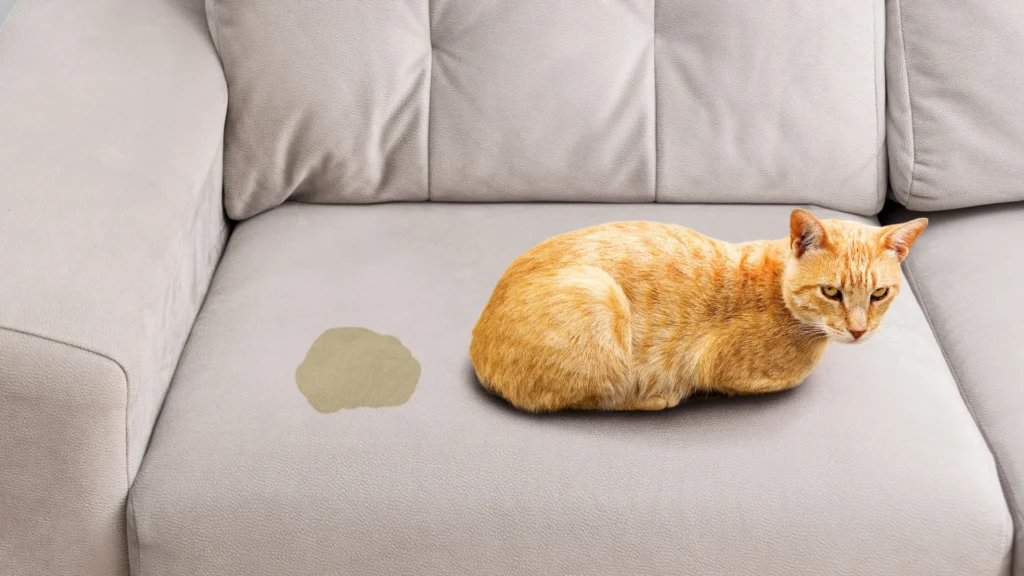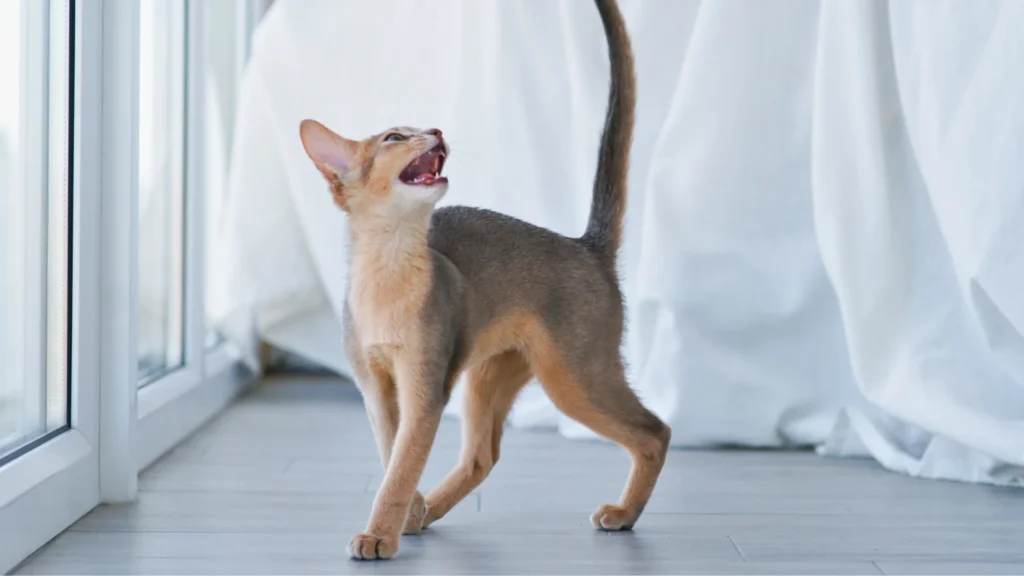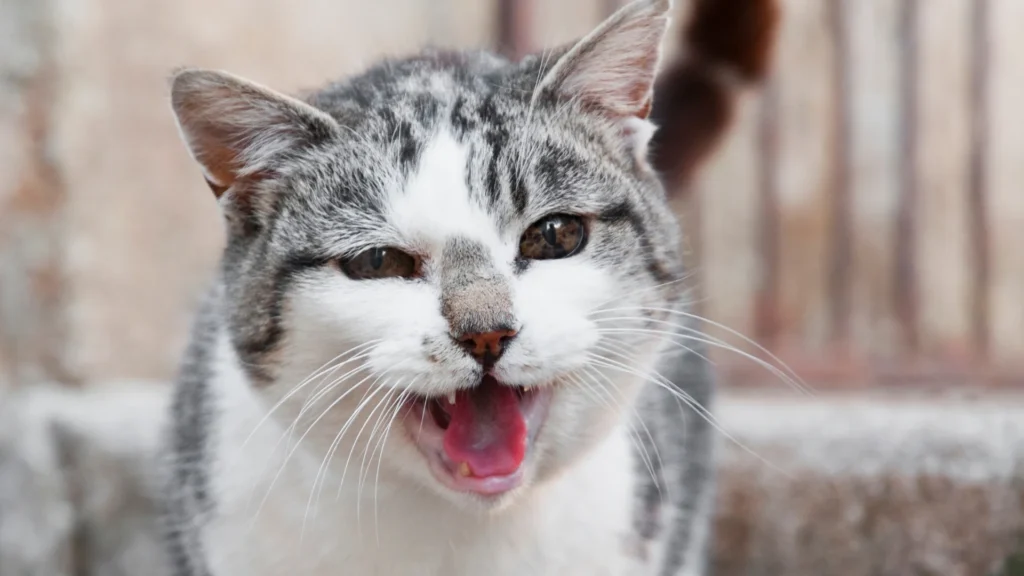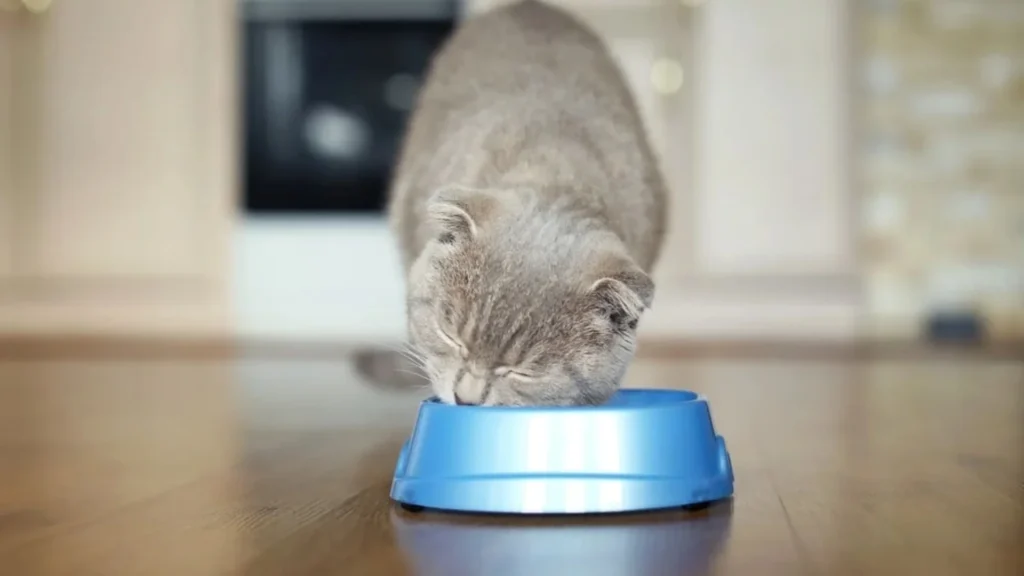Table of Contents
Cuddling with your cat is a daily delight. Cats, known for their cleanliness, occasionally surprise us with an unexpected and unpleasant poopy smell coming from your pet. This can be worrying, as cats usually care about grooming themselves.
Paying attention is essential if your cat starts to emit such an odor. While it’s unlikely to indicate a severe problem, it’s still something you’ll want to address quickly for your comfort and your cat’s well-being.
In this guide, we’re going to explore six common reasons why your cat might smell like poop and provide helpful tips on how to remedy the situation
Six Veterinarian-Recommended Causes and Remedies for a Cat's Poop-like Odour
1 - Uncleaned Litter Box:
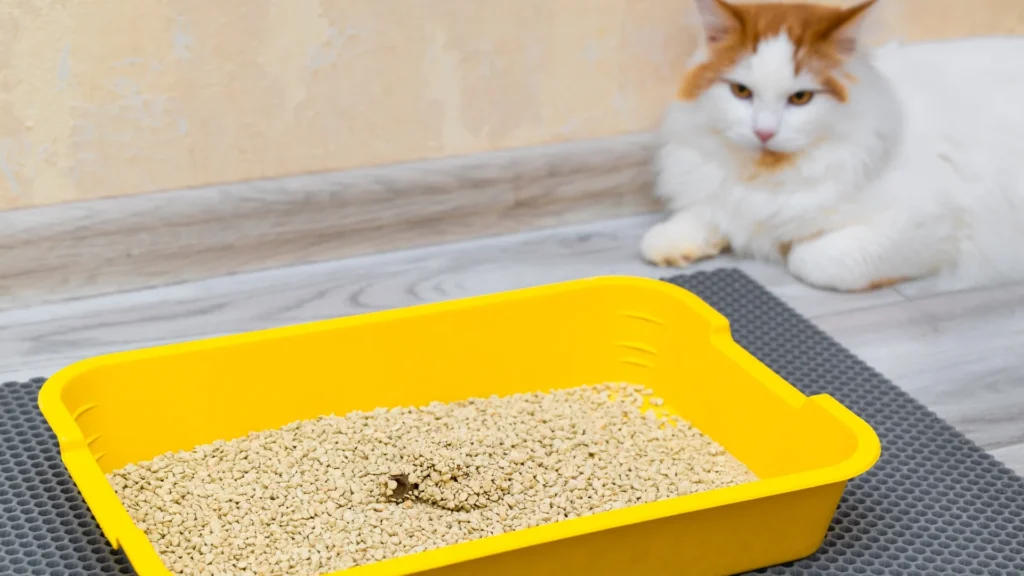
Keeping your cat’s litter box clean is an integral part of their overall hygiene, but even if you maintain it well, your cat may still end up smelling bad. Kittens, in particular, may play around in their litter box and accidentally get feces on their fur. Additionally, cats naturally try to bury their waste using litter or sand, which can lead to poop getting stuck in their hair. This is especially common in long-haired cat breeds like Persians.
The solution to this problem is pretty. If you’re tired of dealing with” The mess caused by cats when they attempt to bury their poop.” you may want to consider investing in a self-cleaning, automatic litter box. These boxes are cleaner than traditional litter boxes. “And I can help to reduce the amount of mess caused by you.” said the cat. However, it’s important to note that automated litter boxes can be expensive. If the price is too high for you, switching to a high-quality litter may also help solve the issue.
2- Dirty cat
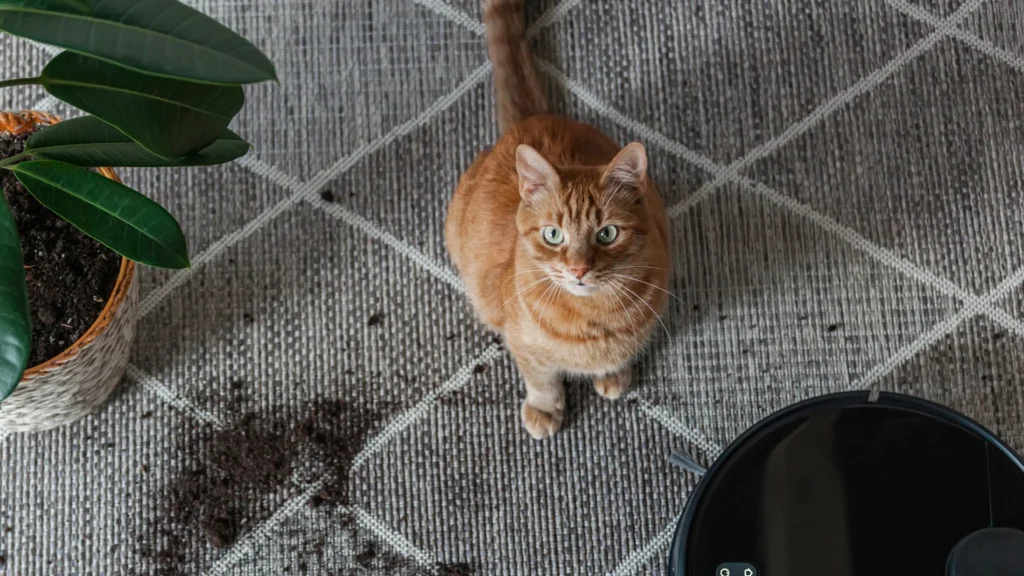
Cats are well-known for their careful and thorough grooming habits. but sometimes, they can still end up with poop stuck in their fur. This issue often occurs if the cat has loose stools. If you notice your cat with dried poop near its backside, it might indicate a digestive problem. Cats that are overweight or suffer from conditions like arthritis might struggle to groom certain areas of their body effectively.
In cases where your cat has fur clumps near its rear, you might need to carefully trim and clean the area to remove any tangled fur. Regularly cutting this area can also help prevent future matting, especially in overweight or sick cats. However, it’s essential to have your cat checked and treated by a veterinarian for any underlying health concerns.
3- Digestive issues
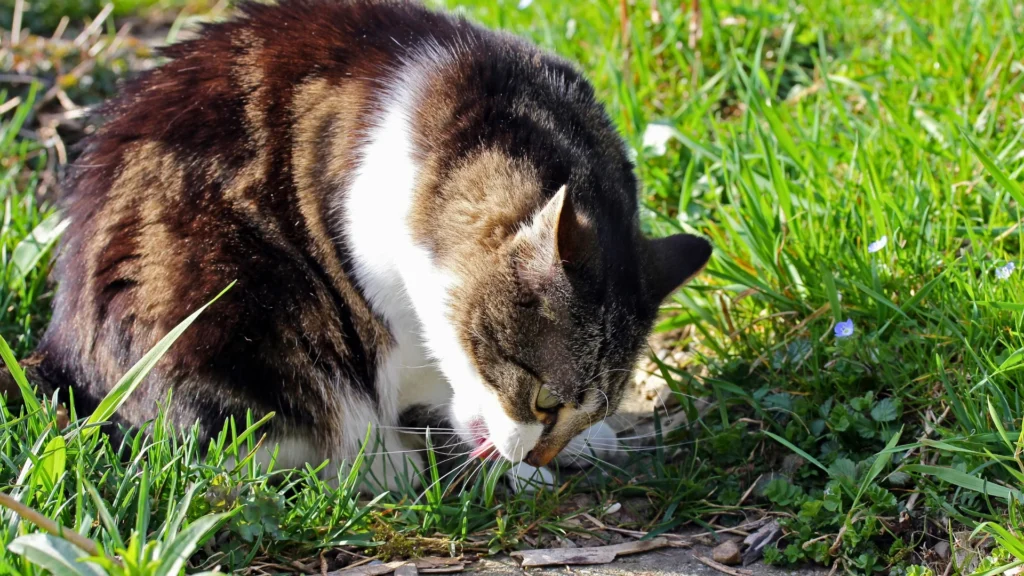
Digestive problems in cats can lead to diarrhea or soft stools, which might stick to their fur. However, these issues can also result in gas. If your cat has a poop-like smell, but there’s no visible mess on their coat, the odor could be from gas.
Digestive issues may arise due to a sudden change in diet or other underlying causes. Possible reasons for digestive problems may consist of a sudden alteration in diet or other causes.
- Cereals such as wheat, soybeans, and corn
- Rotten or expired edibles
- Food sensitivities or intolerances
- Fur ingestion issues
- Blockages in the digestive system
- Dairy products
To better understand your cat’s dietary needs, it’s essential to be mindful of the fiber content in their food. Excessive fiber can lead to digestive issues, so it’s a good idea to check the ingredients list to make sure the fiber content is manageable. Also, it’s advisable to steer clear of giving your cat dairy products and large amounts of grains. Always avoid feeding them spoiled food. If you’ve taken these steps and your cat is still having issues, they might have a food allergy. In such cases, consulting a veterinarian is essential to determine a suitable and healthy diet for your cat.
4 -Improper Grooming:
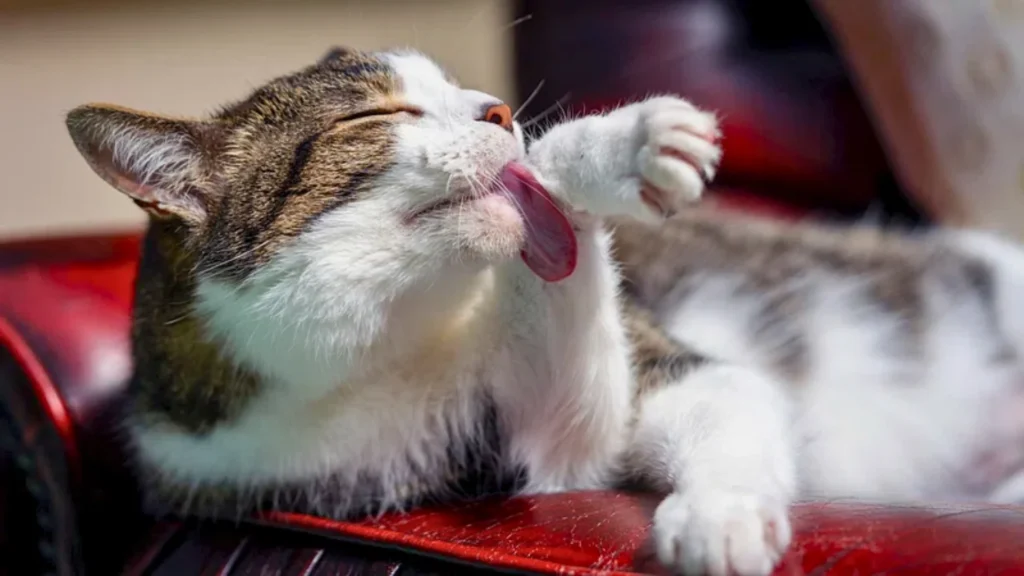
When it comes to grooming, kittens learn from their mother, just like we learn from our parents. Sometimes, though, it takes a little time for them to become experts. Some kittens may not be great at grooming themselves at first, but don’t worry; they’ll get better with practice. However, there are several ways you can assist them in maintaining their hygiene.
Firstly, To help your kitten stay clean and smell fresh, you can lend a hand by brushing their fur and gently cleaning up any mess with a warm, damp cloth. Be cautious with bathing; only do it when necessary, and use cat-specific shampoo. Always ensure the water is warm and avoid getting it in their ears, eyes, or nose.
Lastly, if your kitten’s fur becomes seriously tangled or matted, it’s best to seek professional grooming services to prevent any discomfort or skin issues. With these simple steps, you can help your kitten develop good grooming habits and ensure they stay clean and comfortable as they grow.
5- Roundworm:

Roundworms are a type of parasitic worm that kittens can pick up from their mother’s milk or by coming into contact with infected eggs in their surroundings. Another way they can get infected is by eating animals like rats or mice that carry these worms.
If a kitten has roundworms, they might show signs like slow growth, a rounded belly, diarrhea, or even vomiting up roundworms. The good news is that a veterinarian can help. They’ll give your kitten a particular medicine, usually in the form of a liquid or pill, to get rid of the roundworms and make your little friend feel better.
To effectively manage roundworms in kittens, it’s essential to prioritize preventive measures, such as regular veterinary checkups for early detection and treatment, as well as maintaining a clean living environment to minimize exposure to roundworm eggs.
If your kitten does become infected, following your veterinarian’s advice and administering prescribed oral anti-parasitic medication is crucial for successful treatment and ensuring your kitten’s overall health and well-being.
6- Diet Problem:
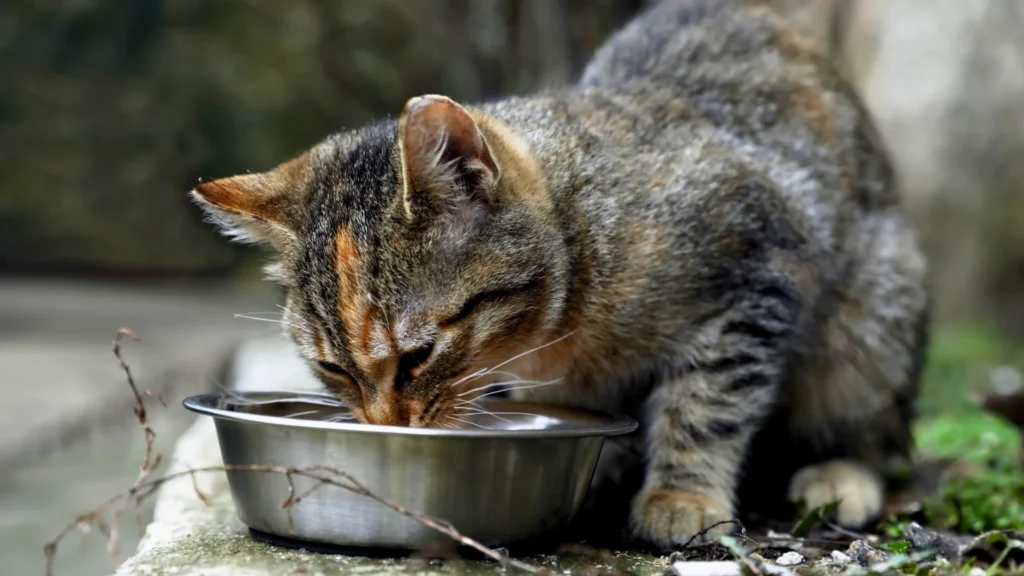
Diet issues can sometimes lead to unpleasant odors in your cat’s digestive system due to their sensitive stomachs. If you’ve been feeding your cat processed food and notice this problem, consider transitioning to a more natural diet. However, remember that a sudden switch in their food can also upset their stomach, so it’s best to make changes gradually.
Start by mixing the new food with their current diet and slowly increase the amount of the fresh food over time. Additionally, keep an eye on the fiber content in your cat’s food. Cats with loose stools might benefit from lower fiber options, while those with constipation may need more fiber. For more information, you can also refer to our article on cat dental health.
If a kitten has roundworms, they might show signs like slow growth, a rounded belly, diarrhea, or even vomiting up roundworms. The good news is that a veterinarian can help. They’ll give your kitten a particular medicine, usually in the form of a liquid or pill, to get rid of the roundworms and make your little friend feel better.
To effectively manage roundworms in kittens, it’s essential to prioritize preventive measures, such as regular veterinary checkups for early detection and treatment, as well as maintaining a clean living environment to minimize exposure to roundworm eggs.
If your kitten does become infected, following your veterinarian’s advice and administering prescribed oral anti-parasitic medication is crucial for successful treatment and ensuring your kitten’s overall health and well-being.
How Do We Eliminate the Smell?
To eliminate unpleasant smells from your cat, especially if they are young and have trouble self-cleaning, there are a few steps you can take. The first option is to use unscented baby wipes or a damp washcloth to remove dried feces gently.
If the mess is extensive, you may need to trim the soiled fur or bathe your kitten. Washing a kitten, even when not visibly soiled, can be beneficial as it helps them become more accustomed to water and grooming. For a thorough cleaning, use lukewarm water and a kitten-appropriate pet shampoo.
However, if your kitten exhibits additional symptoms like diarrhea, lethargy, vomiting, a rounded belly, slow growth, or a disheveled coat, it’s essential to seek veterinary advice promptly. Kittens are delicate creatures and can become dehydrated quickly, so addressing any health issues promptly is crucial.
Frequently Asked Question
In most cases, it’s advisable to bathe indoor cats sparingly, typically about once a month or every six weeks. However, if your cat still has an unpleasant odor despite efforts like maintaining the litter box and adjusting its diet or supplements, a thorough grooming session may be necessary.
Ensure you use a cat-specific shampoo to avoid stripping their natural fur oils, wet their coat, create a foamy lather with the shampoo, and rinse it thoroughly during the bath.
Afterward, gently towel-dry your cat, avoiding a hair dryer, which can be harsh on their fur. Additionally, regular brushing helps distribute natural oils and prevents tangles, particularly in long-haired cats. For cats averse to water and bathing, dry shampoo can be a viable alternative.
To prevent poop smells:
- Maintain a clean litter box by daily scooping and regular litter changes.
- Ensure your cat has fresh water and a high-quality diet to avoid digestive issues.
- Consider using nutraceutical supplements for long-term odor control, as they support a healthy coat and digestion.
For senior cats with arthritis, joint supplements can help improve comfort and grooming abilities. These simple steps will keep your cat smelling fresh and healthy.
If your cat unexpectedly starts smelling like poop, there’s usually no need to worry too much. Typically, the cause and solution are straightforward – a good bath can get your cat smelling fresh again quickly!
However, if your cat’s diet and litter box habits remain normal and unchanged, there could be a more serious issue, though this is relatively uncommon.
Conclusion
If your cat unexpectedly starts smelling like poop, there’s usually no need to worry too much. Typically, the cause and solution are straightforward – a good bath can get your cat smelling fresh again quickly! However, if your cat’s diet and litter box habits remain normal and unchanged, there could be a more serious issue, though this is relatively uncommon

